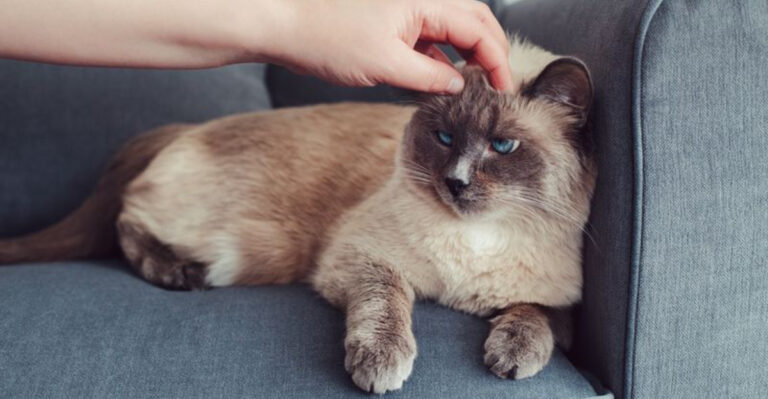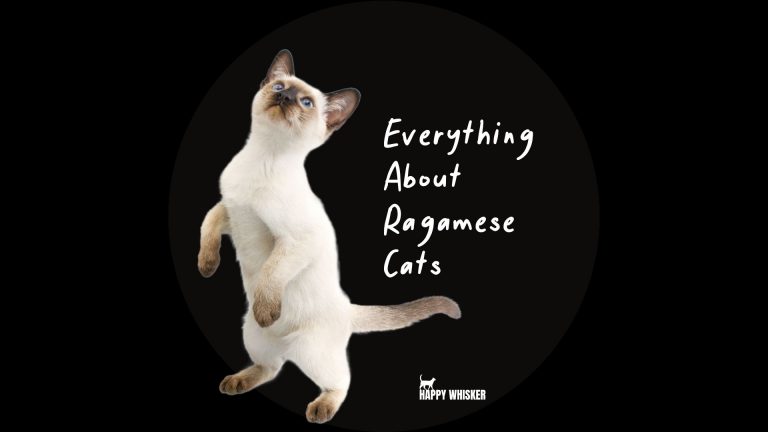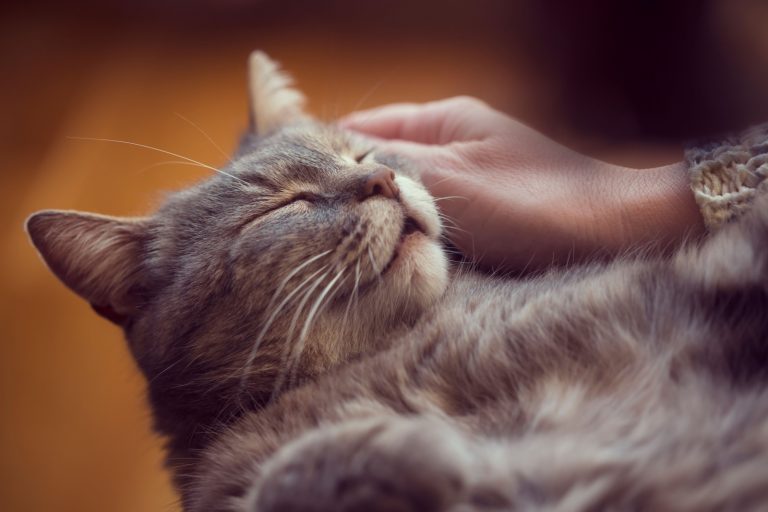Why Is My Cat Shaking? Possible Reasons And How To Help
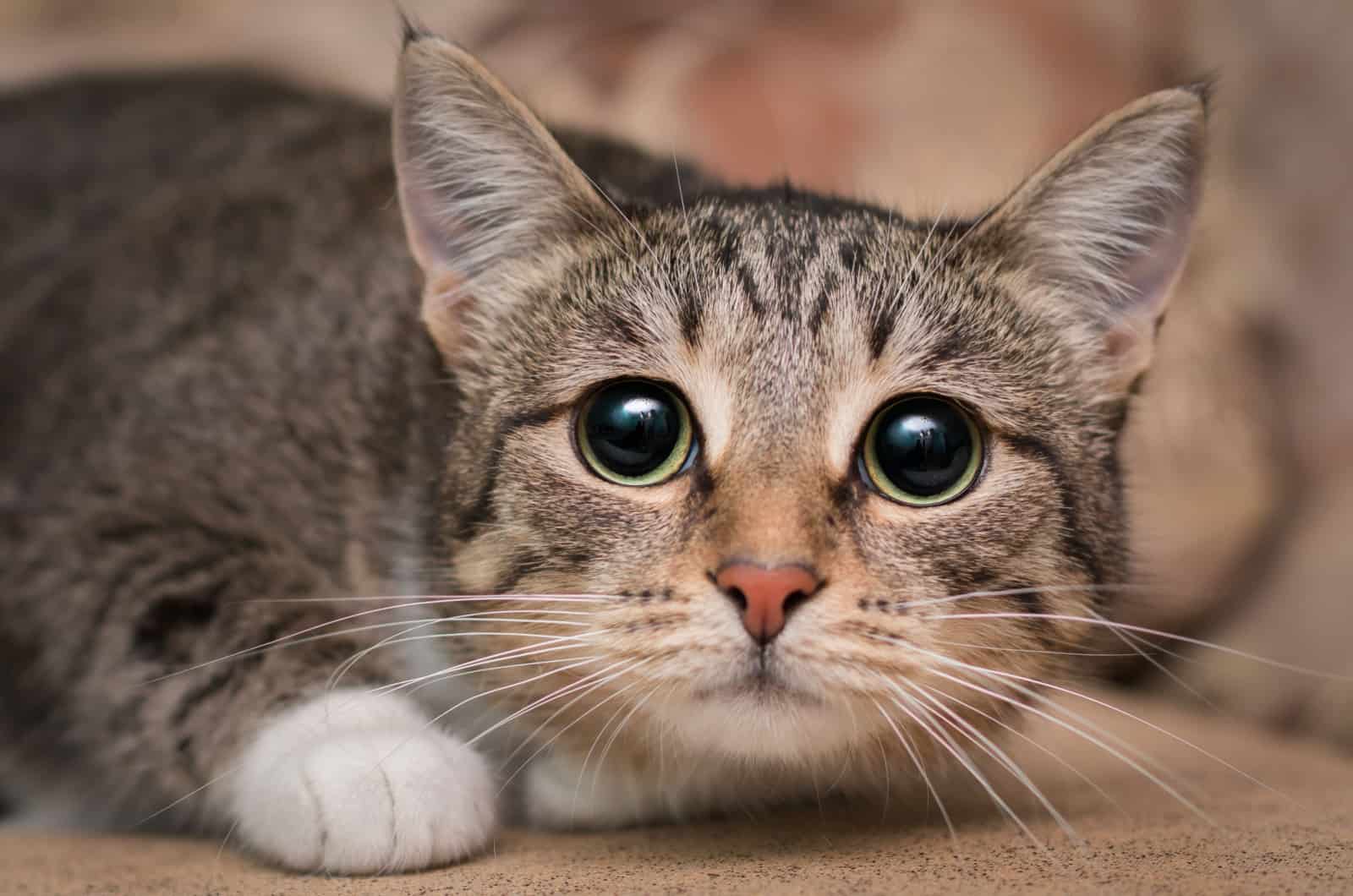
It’s a fact: if your cat appears feverish, restless, or seems to be depressed, it could be sick. If your cat is shaking, you may quite naturally be concerned about their welfare.
This may mean that they are dealing with a bug of some sort or that something that is irritating them. If you notice these symptoms in your cat, it’s highly recommended that you contact your veterinarian right away.
Your cat might also shake due to stormy weather. There are two main reasons why cats shake their whole body during a thunderstorm:
1) They are scared. All cats experience fear at some point in their lives, and this is normal when they hear loud noises or sense changes in atmospheric pressure.
2) They are trying to keep warm. A cat’s normal body temperature is around 100 degrees Fahrenheit. It is important for cats to stay warm, especially when it is cold outside because they are ectothermic animals.
This means that their body temperature depends on the temperature around them. When it gets cold outside, cats have to work harder to keep their body temperatures up and so they may shiver or shake as a way of staying warm.
You may have wondered, why exactly do cats shake, or why is my cat shaking?
Whether your cat is shaking its head or its entire body, there are numerous potential causes, including a few health issues that can cause your cat to tremble or shake.
Pet health should always come first, so check out the following reasons that might be causing your cat to shake.
Why Is My Cat Shaking? 10 Common Causes

If your cat is shaking, it probably means one of two things: it’s either having a hard time relaxing and settling down, or it is trying to rid itself of a bothersome illness.
In either scenario, there are plenty of ways you can help your cat feel better, so start by making sure it is not in need of medical attention.
If your cat is just feeling restless or anxious, try putting it in a quiet room where it can catch its breath and relax. There may have been some trauma or stressful situation that your cat has been through.
If you suspect it has a bug crawling around in its fur, you can use a damp cloth to gently wipe it down. If your cat seems especially skittish and nervous, there could be an underlying cause for its anxiety.
By keeping an eye on its behavior and paying close attention to your cat’s behavior, you may be able to discover the cause of your cat’s trembling and meowing.
The following are the 10 most common reasons why your cat is shaking and what you can do to help.
1. Hyperthermia
Your cat might be shaking due to a high body temperature. This happens when a cat gets a fever, which leads to a rise in its body temperature, lethargy, and/or appetite loss.
You can check this by touching your cat’s ears; if the tips are hot, then your cat probably has a fever. In this case, you should visit the vet to discover the underlying cause and get treatment so that the symptoms don’t worsen.
Another thing that can cause a cat’s temperature to rise above normal is heat stroke. This is less common, but it can happen, so pay close attention to your cat during those hot, sunny days.
Monitor your cat’s water intake and ensure that it stays in the shade when it’s hot outside.
Other warning symptoms of heat stroke include panting, dribbling, heavy breathing, tremors, and loss of consciousness. If you suspect your cat has heatstroke, contact your vet immediately.
2. Hypothermia
Your cat may also be shaking because its body temperature is too low. Perhaps your cat has spent some time outside, and it was very cold or damp, which can lead to a low body temperature.
Cats that are extremely thin, or kittens, are at higher risk of hypothermia. Some other common symptoms of this condition include nausea, lethargy, and slowness.
Hypothermia can also be caused by the loss of blood, shock, toxins, bad circulation, or other illnesses (so it is more likely to occur if your cat hasn’t been feeling well for a couple of days).
If you notice any of these symptoms or if you suspect that your cat is too cold, try warming them up, snuggling them in a blanket or by using a heating pad, keeping them in a warm room, and thoroughly drying them off if they are wet.
If your cat’s condition does not seem to be improving, contact your vet.
3. Stress Or Anxiety

If your cat has had a trauma or a change in routine lately and is feeling stressed or anxious, this can result in shaking. This is due to a nervous reaction and is not something the cat can control.
Cats are often extremely sensitive, and it’s not very easy to determine the cause of the problem. Cats are good at hiding their pain.
If there has been a big change in your everyday lives; perhaps you bought a new piece of furniture, or there has been a new cat in the house, these are all ‘little things’ to us, but they can cause stress or anxiety for your cat. If you recognize the cause of your cat’s stress, try to resolve it.
Try to slowly introduce your cat to the new piece of furniture for example, or provide another comfy place for your cat to nap in.
If some external factor is influencing your cat’s anxiety or stress and you cannot control it, cuddle your cat more and provide more entertainment options so your cat will be distracted and/or reassured.
You can also ask your vet to examine your cat to be sure that there is no underlying medical condition causing the stress.
4. Hypoglycemia
Healthy cats can regulate their blood sugar levels normally. Some cats, such as those with diabetes, are more prone to hypoglycemia, or low blood sugar. Low blood sugar might occur in a cat that is not eating or is vomiting.
Shaking or tremors may be indicators of low blood sugar levels in your cat. Your cat may also appear tired, agitated, or weak. If ignored, hypoglycemia can lead to epilepsy, seizures or life-threatening illness.
If you notice any of these symptoms, or you suspect your cat has low glucose levels while they are awake, give them a tiny bit of food. In this situation, you should always contact your vet, who can assess your cat’s blood sugar levels and provide the appropriate therapy.
If your cat is experiencing a seizure or is unconscious, you should visit your vet right away as this is an emergency situation.
5. Infections
Infections can also make your cat shake uncontrollably. If your cat develops a fever, discomfort, or nausea, this is quite likely to be a response to infection.
Because of pain or discomfort, your cat may only shake the part of the body where there is an infection. Cat infections commonly occur in the head area or in the cat’s paws. Cats suffering from cat flu may shake their heads as well in order to discharge mucus from their airways.
Other symptoms may include a strong odor in the affected body part, a loss of appetite, or fatigue.
If your cat appears ill or shows other symptoms such as sneezing or lethargy, you should take it to the veterinary clinic right away as untreated infections can lead to complications and sometimes even death.
6. Tumors
This isn’t very common, but older cats are more likely to develop tumors that can cause shaking. Cancers or other malignant growths in your cat’s body (commonly in the brain or nervous system) can cause additional behavioral changes.
Your cat may have erratic reflexes, spasms, hypersensitivity to touch, photosensitivity, or tremors. If you observe any of these signs in your cat, you should contact your vet.
Tumors of the neurological system are difficult to identify. First, your vet must address the most severe symptoms, such as seizures.
Your cat might require a brain scan to rule out tumors, as well as blood tests, and a thorough physical examination.
7. Skin Issues
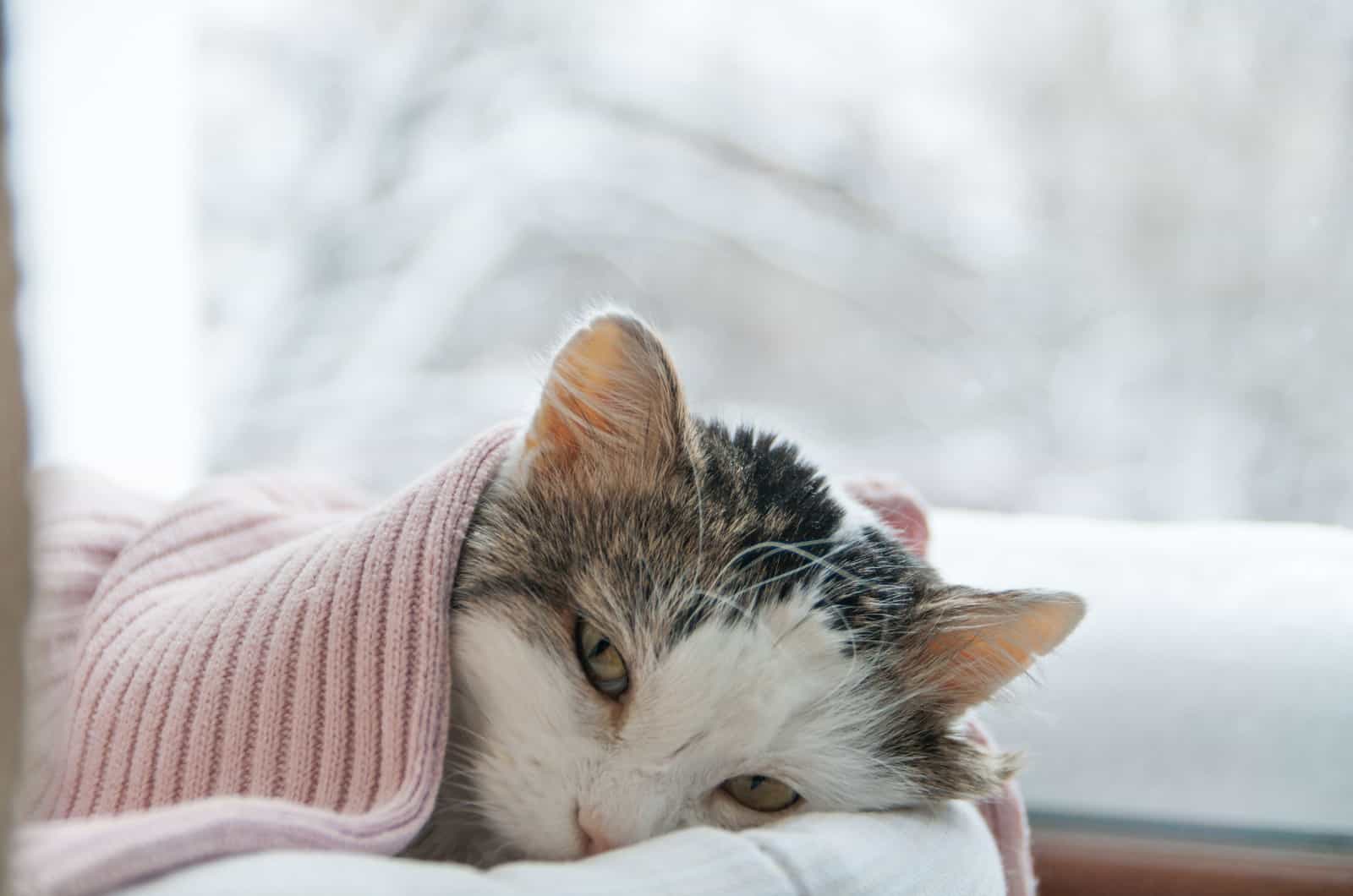
Itching and spasms in your cat’s skin are usually caused by fleas, allergies, or infections. Your cat’s skin may twitch if they have a skin issue.
Your cat may be irritated by fleas and have frequent involuntary skin spasms. You can get help from your veterinarian for flea prevention and treatment for your cat’s skin if it has issues with flea saliva.
Some cats react badly to flea saliva, creating itchy, crusty spots all over their backs.
There are many different skin conditions that may affect your pet cat. Following a bug scratch or bite, an abscess may develop, which often leads to further skin issues.
Ear mites are tiny creatures that can be found in the ears and eat a cat’s ear tissue. They are especially prevalent in kittens. Endocrine dermatosis is a form of dandruff that may affect your cat.
Feline acne is a skin condition that is common in young cats but may also appear on the face of an adult cat. It’s possible to get ringworm, a fungal infection, from your cat.
Mange is a skin condition caused by microscopic mites that burrow into the skin. Scratching is common as a result of these mites, and in turn, hair loss and scabbing occur.
Stress-induced alopecia is an ailment caused by skin irritation resulting from stress, which is often accompanied by insufficient sleep and loss of appetite.
8. Toxins
Shakes or twitches can happen as a result of damage caused by neurotoxins. This happens when a cat has had prolonged exposure to toxins such as slug pellets, spoiled cat food, rodenticides, and lead.
It is important to check your home and your yard for these threats. If a cat wanders outside, it is more prone to being exposed to neurotoxins such as slug pellets, moldy food, rodenticides, and lead.
As pet parents, we may also endanger our cats through household hazards. A common sign of chocolate, caffeine, or essential oil intoxication is trembling. Tremors are also a common symptom of permethrin contamination in cats.
Cats can be accidentally doused in permethrin while brushing them to get rid of fleas or when in close contact with dogs, as this chemical is found in flea remedies intended for dogs.
After tremors or twitching, cats with permethrin toxicity typically stagger, struggle to breathe, suffer seizures, and in severe cases, they can die.
9. Medication Side-Effects
Cats may experience tremors as a result of medications. These symptoms can sometimes be a result of using appetite stimulants, worming medications, pain relief medicines, seizure control medications, antibiotics, or antihistamines.
These side effects are not common; if you are concerned about your cat after they have taken prescribed medication, speak to your veterinarian. Always follow your vet’s instructions when administering medical treatments to your cat.
10. Kidney Disease
When the buildup of protein and waste products occurs in the blood as a result of chronic kidney disease, your cat may suffer from appetite loss, general malaise, and possibly even kidney failure.
Seizures may occur if your cat has suffered kidney failure.
Additionally, as I already said, cats are great at hiding their pain, so you have to pay close attention to their behavior; if you notice anything strange, seek your vet’s advice.
Cats often hide when in pain. If you try to approach them, they might hiss at you. If your cat happens to exhibit any of these signs, you should visit the vet.
The vet will examine your cat and be able to establish a diagnosis by determining where the pain is coming from.
FAQ
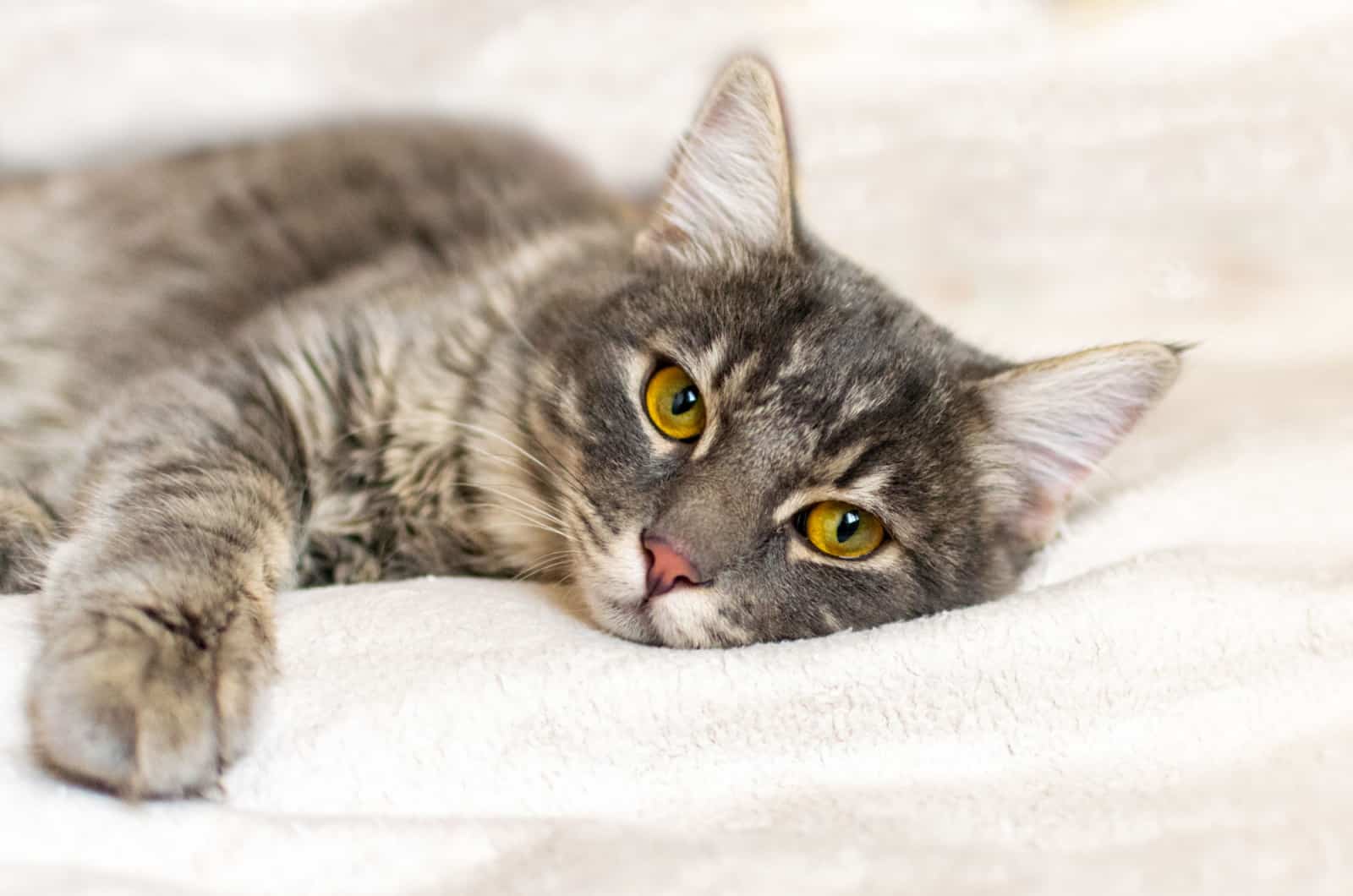
Why is my cat shaking and trembling?
Your cat may be shaking for several reasons. The cause of your cat shaking could be a change of temperature, pain, illness, toxins, issues with skin, stress, and/or anxiety.
What are the symptoms of a cat dying?
It depends on the cause of your cat’s death, but some general symptoms might include unusual smells, hiding, cats preffering to be alone, lowered body temperature, more pronounced lethargy, appetite loss, and cats might also lose interest in drinking water as well.
What is Shaking Cat Syndrome?
Cerebellar Hypoplasia (CH), often known as Shaking Cat Syndrome, is a neurological condition that is characterized by spasms, uncoordinated mobility, and/or lack (or even loss) of balance. The brain of a CH cat doesn’t grow and develop normally.
What are the causes of trembling in cats?
Usually, the causes of cat shaking include muscle spasms or tremors. Other causes can be illnesses, underlying health conditions, side-effects from medications, stress, anxiety, toxins, skin issues, body temperature changes, or infections.
Why does my cat tremble when sleeping?
Cats can also tremble while they’re asleep. Cats easily shift between light napping and deep sleep. Your cat is usually in a deep sleep for a couple of minutes, and during this period, it may shake or twitch.
Final Words
When a cat is exposed to extreme temperatures, it will often shake its whole body to try and get the blood flowing normally. This can be caused by heat stroke or even just a sudden rise in temperature.
Another reason why your cat might be shaking its whole body is because of a change in temperature inside the body.
When they are very warm, their body will have to get rid of some heat, and they may start shaking to cool down. When they are very cold, they may start shaking to keep their core warm.
If your cat is shaking its whole body, this may be because of a medical condition or disease. If your cat has any signs of seizures or fits, for example, it could be due to something that’s going on inside his body.
This may be something like low blood sugar levels from not eating enough or something pressing on a nerve, causing your cat’s shivering.
All in all, cat owners should always seek the vet’s advice and help. Most things can be treated but it’s important to get help as soon as you suspect there might be a problem.
Our feline friends can be quite sneaky and they hide their ailments pretty well; pay close attention to your cat’s behavior, and all should be well.
Related Articles:
• What Are Those Black Spots On Cat’s Mouth – Freckles Or Not


